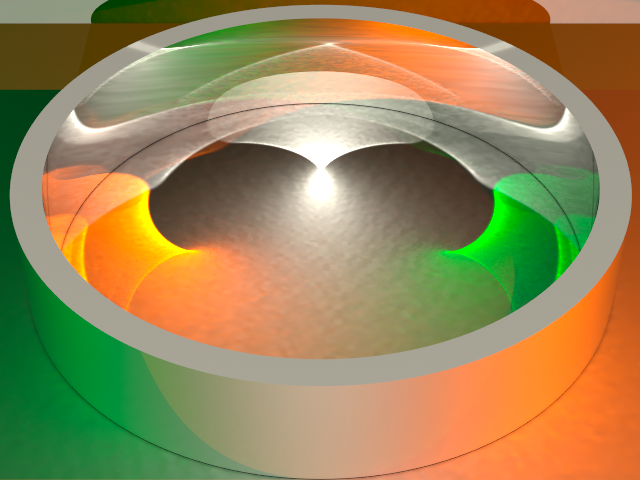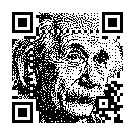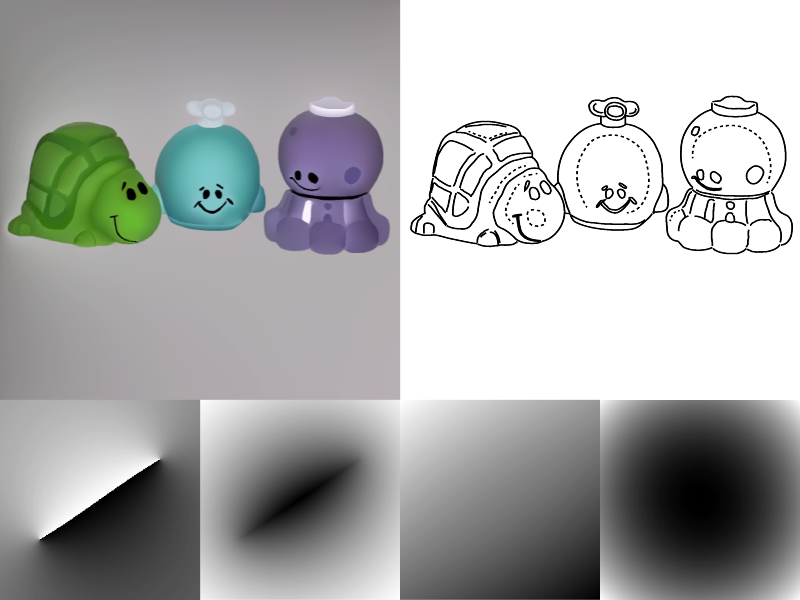
Bilateral Blue Noise Sampling
Bilateral blue noise modulates traditional sample spacing criteria with a similarity measure that considers both spatial and non-spatial attributes. Our method generalizes traditional blue noise to benefit applications such as point cloud sampling, biological distribution, and photon density estimation.
Jiating Chen, Tsinghua University
Xiaoyin Ge, The Ohio State University
Li-Yi Wei, The University of Hong Kong/Microsoft Research
Bin Wang, Tsinghua University
Yusu Wang, The Ohio State University
Huamin Wang, The Ohio State University
Yun Fei, Tsinghua University
Kang-Lai Qian, Tsinghua University
Jun-Hai Yong, Tsinghua University
Wenping Wang, The University of Hong Kong

Halftone QR Codes
We propose an automatic algorithm to produce high quality visual QR codes, which we call halftone QR codes, that are still machine-readable.
Hung-Kuo Chu, National Tsing Hua University
Chia-Sheng Chang, National Tsing Hua University
Ruen-Rone Lee, National Tsing Hua University
Niloy J. Mitra, University College London

Interactive By-example Design of Artistic Packing Layouts
We propose an approach to "pack" a set of two-dimensional graphical primitives into a spatial layout that follows artistic goals. We formalize this process as projecting from a high-dimensional feature space into a 2D layout
Bernhard Reinert, Max-Planck-Institute Informatik
Tobias Ritschel, Max-Planck-Institute Informatik, Cluster of Excellance - MMCI / Saarland University
Hans-Peter Seidel, Max-Planck-Institute Informatik

Biharmonic diffusion curve images from boundary elements
We present a Boundary Element Method (BEM) for rendering diffusion curve images with smooth interpolation and gradient constraints, which generates a solved boundary element representation. The diffusion curve image can be evaluated from the solved representation using a line-by-line approach or a curve-aware upsampling approach.
Peter Ilbery, Canon Information Systems Research Australia
Luke Kendall, Canon Information Systems Research Australia
Cyril Concolato, Telecom ParisTech
Michael McCosker, Canon Information Systems Research Australia






